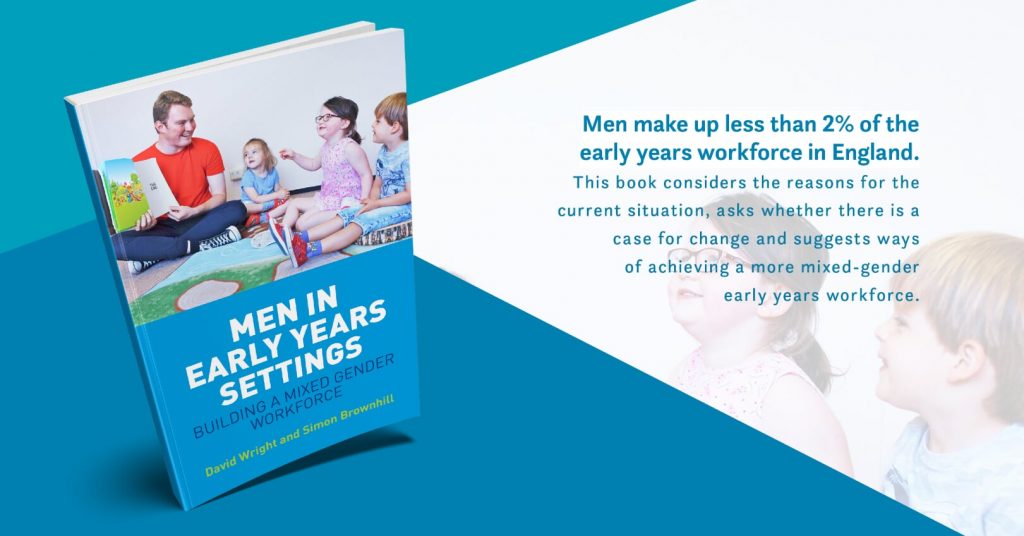New book, Men in Early Years Settings, explores the role of male professionals in early years teaching and provides guidance for practitioners, managers and policy makers on building a more mixed-gender workforce by successfully attracting, recruiting, retaining and developing men in their teams. Here, co-author David Wright explains why this book is needed.
A male Early Years teacher wearing his work top with a clear nursery logo on it pops out for lunch on a summer’s day to enjoy his sandwiches in the local central London park. He finds a suitable bench adjacent to a children’s play area from which he can sit and watch parents and their children enjoying themselves playing together. He has only been sat there for a few moments before he is challenged by two uniformed police officers who demand to know why he is sitting this close to a children’s play area. They direct him to move elsewhere. This is today’s England, a country in which it can be challenging to be a man in relation to children. Whilst there is evident overwhelming support expressed by parents in polls and surveys for more men to work in our Early Years settings across the country, as a society we are still conflicted and find ourselves caught up in the discourse regarding the appropriateness of men working with young children. Is this and should it remain, ‘women’s work’? Are all men not to be trusted? Should we, as Andrea Leadsom was once quoted, ‘not take the risk’ of employing male childcare workers?
And if we do decide to employ men, why and what is that we want of them? Do we expect them to be role models? Are we concerned that they may import toxic masculinity, inculcating historical patriarchy to the next generation? Should they only pass the fitness test through some form of emasculation?
I’m not convinced we have even asked these questions of ourselves yet, let alone started to answer them. As a man who has worked in the Early Years sector for over 15 years and having interviewed hundreds of men similarly engaged in working with young children across the world, I am convinced of the moral imperative for us to continue to do so. To deny young children the opportunity to interact with both men and women during their formative years is to provide a suboptimal environment for them in which to build their own internal models of the world, models which form the basis for the subsequent development of healthy relationships. I am thus advocating for a representative workforce built on a professional identity, one that reflects the community our children are growing up in and where individual teachers are encouraged and supported to bring their own unique character to work, free from suspicion, prejudice or pressure to conform. Wouldn’t this foster more tolerant, compassionate, egalitarian and enriching settings in which to raise our children?
The motivation for Simon Brownhill and myself to collaborate on our new book Men in Early Years Settings: Building a Mixed Gender Workforce was to provide a candid exposition of the issues surrounding the current gender make up of the Early Years workforce in England where only 2% is male. We ask why this is the case; what are the benefits of a mixed gender team and how this can be achieved? Grounded in research, it is intended as a practical book which we hope will serve a resource to those willing to challenge the status quo, with models, tools and strategies to support reflection and action. It is our hope that this book helps to address some of our questions about the role of men in Early Years and moves us further towards a society where it is normal for our youngest boys and girls to be cared for and educated by men and women.
If you would like to read more articles like this and get the latest news and offers on our early years books, why not join our mailing list? We can send information by email or post as you prefer. You may also be interested in liking our Special Ed, PSHE and Early Years Resources Facebook page.




